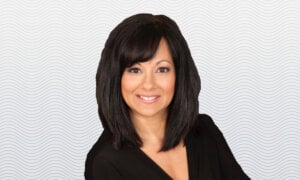The basic concept is to buy a permanent insurance policy (not a term policy) in your corporation. Then, like a reverse mortgage, borrow against the policy’s cash value and pay yourself a taxable dividend from your corporation. When you pass away, the loan is paid off with the tax-free life insurance death benefit and the remaining insurance is paid out of your corporation to your children (shareholders) tax-free.
This concept is best suited to conservative or moderate-risk investors who have maximized their Registered Retirement Savings Plans (RRSPs) and Tax-Free Savings Accounts (TFSAs). This strategy will likely not appeal to an aggressive investor who plans to hold only non-dividend paying stocks in their portfolio throughout their lifetime.
To really understand how this works and visualize the benefits, you need to understand the tax behind the strategy.
Watch: How to split an inheritance
Tax impact
In Ontario, anyone earning $260,000 will pay about $100,000 in tax, leaving them with $160,000.
With your corporation, you can decide on the amount you want to pay yourself and the amount you would like to leave in your corporation.
In your case, if you pay yourself a salary of $150,000, you will pay tax of $45,413, leaving you with $104,587.
Now here is the important part: What happens to the $110,000 ($260,00 – $150,000) you’re leaving in the holding company?
In Ontario, the small business tax rate is 12.2%, so on $110,000, your company will only pay tax of $13,420, leaving you with $96,580 to invest.
Bottom line: You will pay $41,167 less tax by splitting your income between your personal income and your holding company. Sure, you’ll have to pay some tax when you eventually draw dividends from your corporation, unless, of course, the accumulation of your $41,167 tax savings leaves your corporation as a tax-free dividend created by a tax-free life insurance death benefit.












My Husband and I we have 20 years Term life insurance for 15 years now. We are contemplating to use the collateral option to pay for our mortgage and buy a cottage etc. We are 65 and 63 but we are afraid to do so not knowing how would that work for our children . Please advise, thank you.